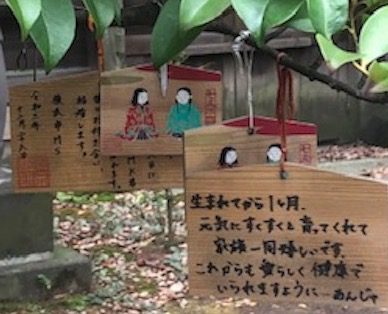Social isolation nearly 1.5 million in Japan (Hikikomori)
Kanako Mita and Sawako Utsumi
Modern Tokyo Times

The Japanese government said approximately 1.46 million people aged between 15 and 64 are social recluses. Some younger people also are reclusive and refuse to go to school concerning bullying, exam pressure, and other factors.
In Japan, the word “hikikomori” is used for reclusive people. Accordingly, the coronavirus (Covid-19) crisis is another recent factor for this complex issue that blights Japan.
NHK reports, “Some hikikomori may even go for decades without leaving their house. While in the past the phenomenon was most commonly associated with young men, recent data has revealed a much wider demographic of people whose confidence in themselves, and in society, has been shattered. As the parents or relatives hikikomori so often depend on entirely become too old to care for them, many now face a dire situation, left alone and unable to cope.”
A recent study of reasons behind the hikikomori crisis in Japan was taken from the answers of over 11,000 people. This study concerned people in the age group of 15 to 39.
The findings stipulated that losing employment was the top factor at 21.5%. This was followed by being scared of the coronavirus at 18.1%. Other factors include the stresses of life, bullying, the role of technology in society, over-reliance on family members, mental health issues that aren’t addressed adequately, and many other reasons.
In a survey by the Edogawa Ward in Tokyo – they estimate that 1.3% of all residents are reclusive. This finding was based on 103,000 households replying out of 180,000 to questions concerning hikikomori.
The Asahi Shimbun reports, “Ninety percent of the hikikomori cited in the survey were living with their families or others. More than 30 percent of the hikikomori were children of the respondents and nearly 20 percent were spouses or partners, the results showed.”
The findings of Edogawa Ward were slightly different. This highlights the concentration of people in a busy Tokyo ward – compared with the other survey that questioned people residing in various parts of the country.
Edogawa Ward said the main factors were the following: poor long-term health conditions (20%), stresses of work (14%), failure to find employment led to self-esteem issues (11%), and a plethora of other areas.
Naturally, with so many relying on elderly parents for economic support: the situation is set for another depressing angle of increasing deaths of people dying alone and disappearing from society.

PLEASE DONATE TO HELP MODERN TOKYO TIMES
Modern Tokyo News is part of the Modern Tokyo Times group
DONATIONS to SUPPORT MODERN TOKYO TIMES – please pay PayPal and DONATE to sawakoart@gmail.com
http://moderntokyotimes.com Modern Tokyo Times – International News and Japan News
http://sawakoart.com – Sawako Utsumi’s website and Modern Tokyo Times artist
https://moderntokyonews.com Modern Tokyo News – Tokyo News and International News
PLEASE JOIN ON TWITTER
https://twitter.com/MTT_News Modern Tokyo Times
PLEASE JOIN ON FACEBOOK
http://facebook.com/moderntokyotimes